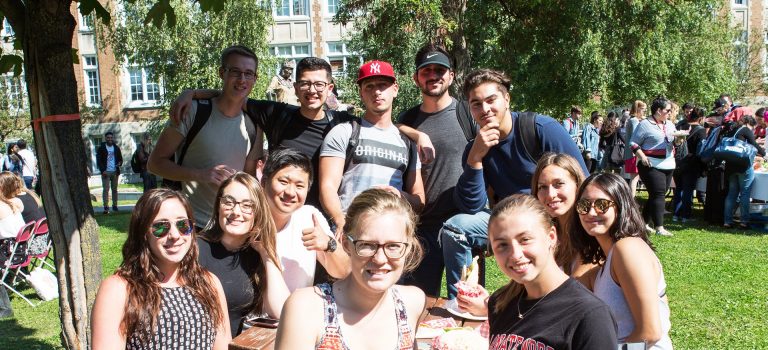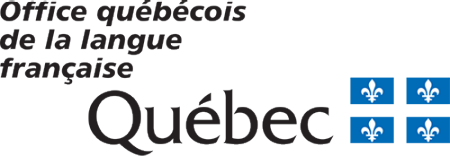Avec la contribution financière de

Specialized industries each have their own unique vocabulary. Familiarizing oneself with the terms is only part of the challenge — the next step is to understand how to use them correctly.
Over the next three years, Concordia’s Département d’études françaises, with funding from the Office québécois de la langue française (OQLF), is embarking on a project to support students with a suite of French-language terminology tools. Because Concordia’s language of instruction is English, these resources will prepare students to compete in the French-speaking workforce and gain acceptance into many professional orders in the province that require a command of French.
The tools are geared toward students in the Gina Cody School of Engineering and Computer Science and John Molson School of Business.
“Our commitment to our students is to ensure that they leave Concordia with the confidence to become leaders in Quebec,” says Pascale Sicotte, dean of the Faculty of Arts and Science.
“We are proud to partner with the OQLF to provide French-language resources of the highest calibre to make this commitment a reality.”
The $300,000 in funding includes paid placements for terminology and translation students to work alongside certified terminologists to develop exercises, tests and other educational materials. The content will be categorized by subject area and consist of 4,500 terminology records.
In addition, exercises and practice tests related to the concepts will be hosted on Moodle, Concordia’s course-delivery system.
“This initiative reinforces our efforts in educating the next generation of highly qualified personnel in engineering and computer science to contribute to Montreal and Quebec’s economic prosperity,” says Mourad Debbabi, dean of the Gina Cody School.
“Thanks to the OQLF, our students will be better equipped to thrive en français in their future career.”
Philippe Caignon, a terminologist, translator and professor in the Département d’études françaises, is the project’s manager. He explains the nuance between a term in a bilingual dictionary and a terminology bank.
“In a dictionary entry, you only find the definition but not a detailed explanation about how to use it in a variety of contexts and with a variety of adjectives and verbs, for example,” he says.
“In a job interview or when speaking to clients, we want students to be able to express themselves at an advanced level.”
A requirement of the project is that 70 per cent of the concepts and terms created do not currently appear in the Grand dictionnaire terminologique, the OQLF database housed on the office’s website. The remaining 30 per cent will be updates to existing entries.
“The students employed for this project will be gaining invaluable experience working alongside certified terminologists and following OQLF protocols,” Caignon adds.
“We will be reviewing student work and providing feedback and essentially treating them as professional terminologists.”
The first year will be focused on developing tools related to engineering and computer science, followed by business terms. Because specialized terms are in constant flux due to advances in technology and other changes, the project team will review them on a regular basis to keep the information up to date.
“On behalf of the Faculty of Arts and Science, I would also like to thank Maria Trigueiro and Chanel Bourdon for their work in establishing this fruitful working relationship with the OQLF for the benefit of our students and society at large,” Sicotte notes.
The Département d’études françaises previously partnered with the office on the Réussir en français initiative, a French-language learning hub for the Concordia community. The website, concordia.ca/reussirenfrancais, centralizes the promotion of all French-language partnerships, activities and resources for Concordia community members.
Learn more about Concordia’s Réussir en français learning hub and the Département d’études françaises.

Avec la contribution financière de
© Concordia University